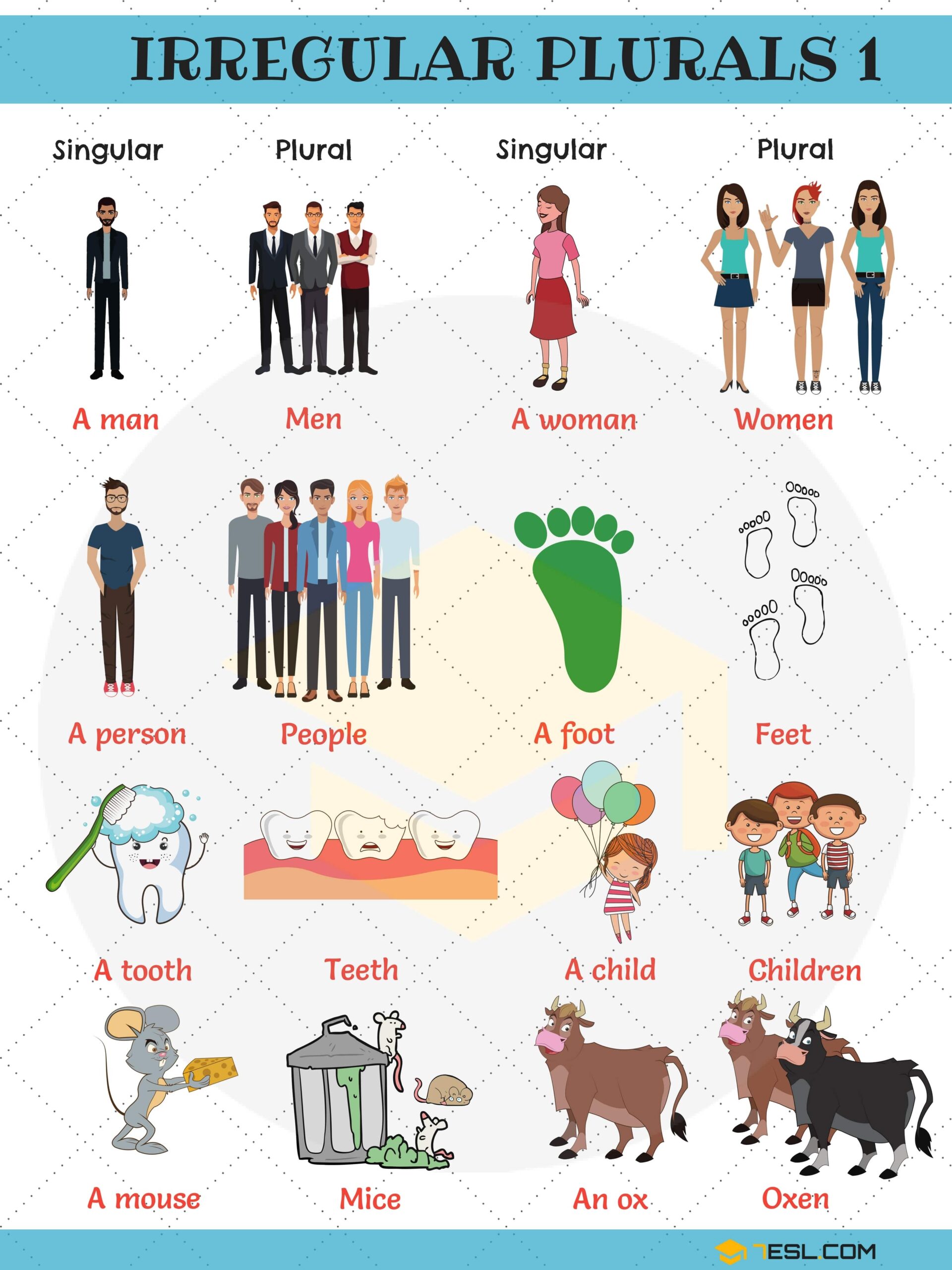Plural nouns refer to more than one person, place, thing, or idea. They are an essential part of the English language and are used in everyday communication. Understanding the different types of plural nouns can help you improve your grammar skills and communicate effectively.
There are various rules and exceptions when it comes to forming plural nouns in English. Some nouns simply add an “s” to the end, while others require different endings or spelling changes. Learning the different types of plural nouns can help you navigate these rules with ease.
Types of Plural Nouns
1. Regular Plural Nouns: The most common type of plural noun simply adds an “s” to the singular form. For example, “cat” becomes “cats” and “dog” becomes “dogs.”
2. Irregular Plural Nouns: Some nouns have irregular plural forms that do not follow the typical rules. For example, “child” becomes “children” and “mouse” becomes “mice.”
3. Plural Nouns Ending in -es: Nouns that end in -s, -ss, -sh, -ch, or -x form their plural by adding -es. For example, “box” becomes “boxes” and “church” becomes “churches.”
4. Plural Nouns Ending in -ies: Nouns that end in a consonant followed by a “y” form their plural by changing the “y” to “i” and adding -es. For example, “baby” becomes “babies” and “city” becomes “cities.”
5. Plural Nouns Ending in -ves: Some nouns ending in -f or -fe change the ending to -ves to form their plural. For example, “leaf” becomes “leaves” and “wife” becomes “wives.”
Understanding the different types of plural nouns can help you use proper grammar and communicate effectively in English. By practicing and familiarizing yourself with these rules, you can improve your writing and speaking skills. Remember to pay attention to the specific rules for each type of plural noun to avoid common mistakes. Keep practicing and you will become more confident in using plural nouns correctly.
In conclusion, mastering the various types of plural nouns is essential for anyone looking to improve their English language skills. By understanding the rules and exceptions associated with forming plural nouns, you can enhance your communication abilities and express yourself more effectively. Practice using different types of plural nouns in your writing and speech to become more proficient in using them correctly.
